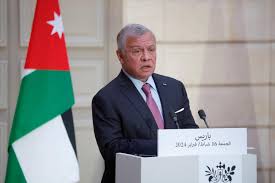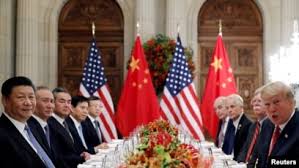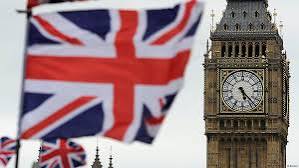In a bold move that has sent ripples through the region, the Jordanian government has officially outlawed the Muslim Brotherhood, marking a significant escalation in its crackdown on Islamist groups.
The government’s actions, announced on April 23, 2025, include the confiscation of assets belonging to the Brotherhood and its affiliates, as well as the closure of its offices across the country. This decision represents a sharp turn in Jordan’s relationship with the Brotherhood, a group that has long been a key political player in the nation.
According to the Interior Ministry, the ban was imposed due to the Brotherhood’s alleged involvement in activities deemed to threaten national security.
Authorities have moved swiftly to dismantle the group’s infrastructure, raiding its headquarters and confiscating materials associated with its operations. The Islamic Action Front (IAF), which is the Brotherhood’s political arm and the largest opposition party in Jordan, is also under intense scrutiny. Its offices were raided as part of the broader security sweep.
The government’s actions follow the arrest of several individuals linked to the Brotherhood, who are accused of planning violent activities, including the manufacture of explosives and plotting attacks on security forces.
While the government has not released full details of these allegations, sources close to the investigation claim that the arrested individuals were part of a larger network intending to destabilize the state.
The Brotherhood has strongly denied any involvement in violent extremism. In a statement, the group reiterated its commitment to peaceful political engagement and criticized the government’s actions as unjustified.
The move to outlaw the Brotherhood is likely to deepen political tensions in the kingdom, with many supporters of the group seeing it as a politically motivated attempt to suppress dissent.
Jordan’s decision aligns with actions taken by other Middle Eastern nations, including Egypt and Saudi Arabia, which have also banned the Muslim Brotherhood, accusing it of fostering extremism. Jordan’s crackdown, however, is unique in its scope, as it includes both the political and social wings of the organization. The move could set a precedent for other governments in the region that are grappling with the influence of Islamist groups in their political systems.
This development has raised concerns among local analysts, who fear the long-term consequences for Jordan’s stability. Some have warned that such drastic actions could further fuel political polarization and weaken the country’s already fragile civil society.
There are also worries that the government’s heavy-handed approach might lead to increased unrest, especially as the country faces economic challenges and rising public dissatisfaction.
As the situation continues to unfold, many are watching closely to see how the international community reacts to Jordan’s most assertive action against the Brotherhood in decades. The country’s political future remains uncertain, and the implications of this decision will likely be felt far beyond its borders.







